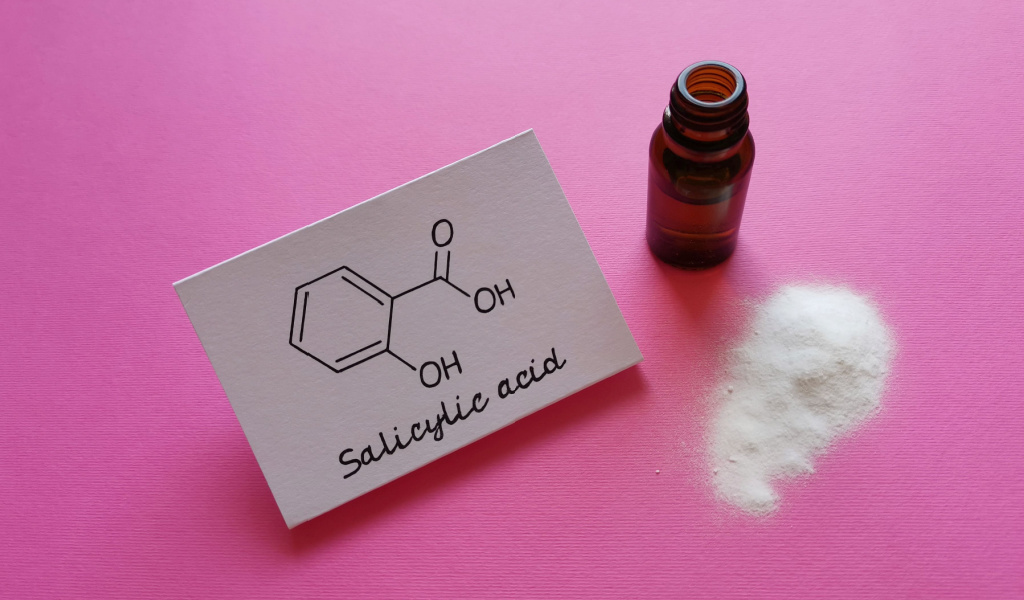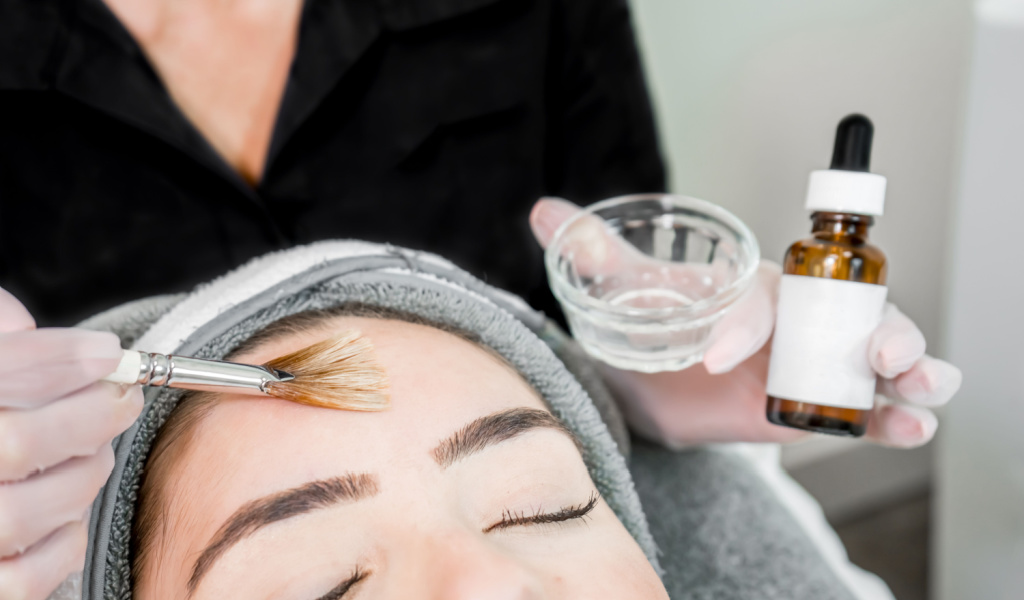Two of the most common classes of acids typically used in skin care products include beta hydroxy acids (BHAs) and alpha hydroxyl acids (AHAs). The main difference between the two is that AHAs are water-soluble, and BHAs are oil-soluble. The former is more effective on the outer layer of the skin, while the latter is more effective in penetrating through the lipid layers between the skin cells. Salicylic acid is a plant hormone derived from willow, belonging to a class of ingredients called salicylates and falling under the category of BHAs.

How Salicylic Acid Works on Acne
Salicylic acid has been found to work wonders on acne-prone skin by helping keep it exfoliated and its pores gunk-free. What most people know as “pores” are hair follicles in the skin. When these openings are filled with substances such as dead skin cells, oil, and dirt, it can lead to the formation of blackheads (open plugged pores), whiteheads (closed plugged pores), or pimples (pustules).
Salicylic acid can penetrate deep into your skin, which is its most valuable quality. Through this penetration, salicylic acids can dissolve the dead skin cells and skin debris that clog your pores and prevent the formation of blackheads, whiteheads, and pimples.
Products with higher concentrations of salicylic acids can also be used as a peeling agent in treating severe acne, acne scars, age spots, and melasma. They may also be used as exfoliants. Salicylic acid is considered a keratolytic medication, making it the ideal stimulant for supreme exfoliation.
How to Use Salicylic Acid
You can consult a dermatologist to determine the correct dosage for your skin, and this can be especially important if your acne condition is very severe or if you are experiencing certain other medical conditions. Otherwise, you can purchase salicylic acid-based skincare products over the counter and use them as directed.
Salicylic acid can be found in a variety of skincare products that come in many forms, such as gels, lotions, solutions, etc. What you choose to use must depend on your skin type and skin’s current conditions. As with any other skincare product, it is recommended that you do a patch test on a small area of skin before applying it to the entire area to make sure that you aren’t allergic to any of the ingredients in the product.
However, the National Library of Medicine generally has a guideline for the recommended dosage of salicylic acid in adults. This is:
- Gels with 2-7% salicylic acid: once daily.
- Lotions with 2% salicylic acid: 1-3 times daily.
- Ointments with 3% salicylic acid: as required.
- Pads with 0.5-2% salicylic acid: 1-3 times daily.
- Soaps with 0.5-3% salicylic acid: as required.
- Solutions with 0.5-2% salicylic acid: 1-3 times daily.
Are There Any Side Effects of Salicylic Acid?
Salicylic acid is generally considered to be safe for everyone. Still, there may be a “purging period” when you first start using it, which can cause irritation and maybe even a few breakouts. However, this is common to all skincare products when newly introduced to the skin.
In some rare cases, people with dry or extremely sensitive skin may have an adverse reaction to salicylic acid, especially if they use too much of it too quickly. Therefore, if you have these skin types, experts recommend gradually increasing the frequency and amount of salicylic acid you use. Start with just a drop or two every other day. If you find that your skin isn’t adjusting to it, you may be better off avoiding it entirely. Consult your doctor immediately if you have experienced an allergic reaction to salicylic acid.
It is also best avoided by small children, pregnant women, and those who take certain medications, such as blood thinners. According to The American College of Obstetricians and Gynecologists (ACOG), while salicylic acid is generally safe to use during pregnancy, certain medications may react badly to it, and nursing mothers should avoid using it in areas that may come into contact with an infant’s skin or mouth. In such cases, your doctor should be able to advise you whether it is safe to use salicylic acid in topical applications.
In Conclusion
There is no magic cure for acne, but salicylic acid has shown significant promise in helping people with all different skin types achieve acne-free skin. To get the desired results, it is essential to be patient and consistent when using skincare products.
Suppose you are unsure how to use salicylic acid or have yet to see any improvement after prolonged usage. In that case, it might be worth consulting a doctor to get an evaluation of whether it is the answer to your skincare woes or if you may have some other health condition that needs to be taken care of first.




